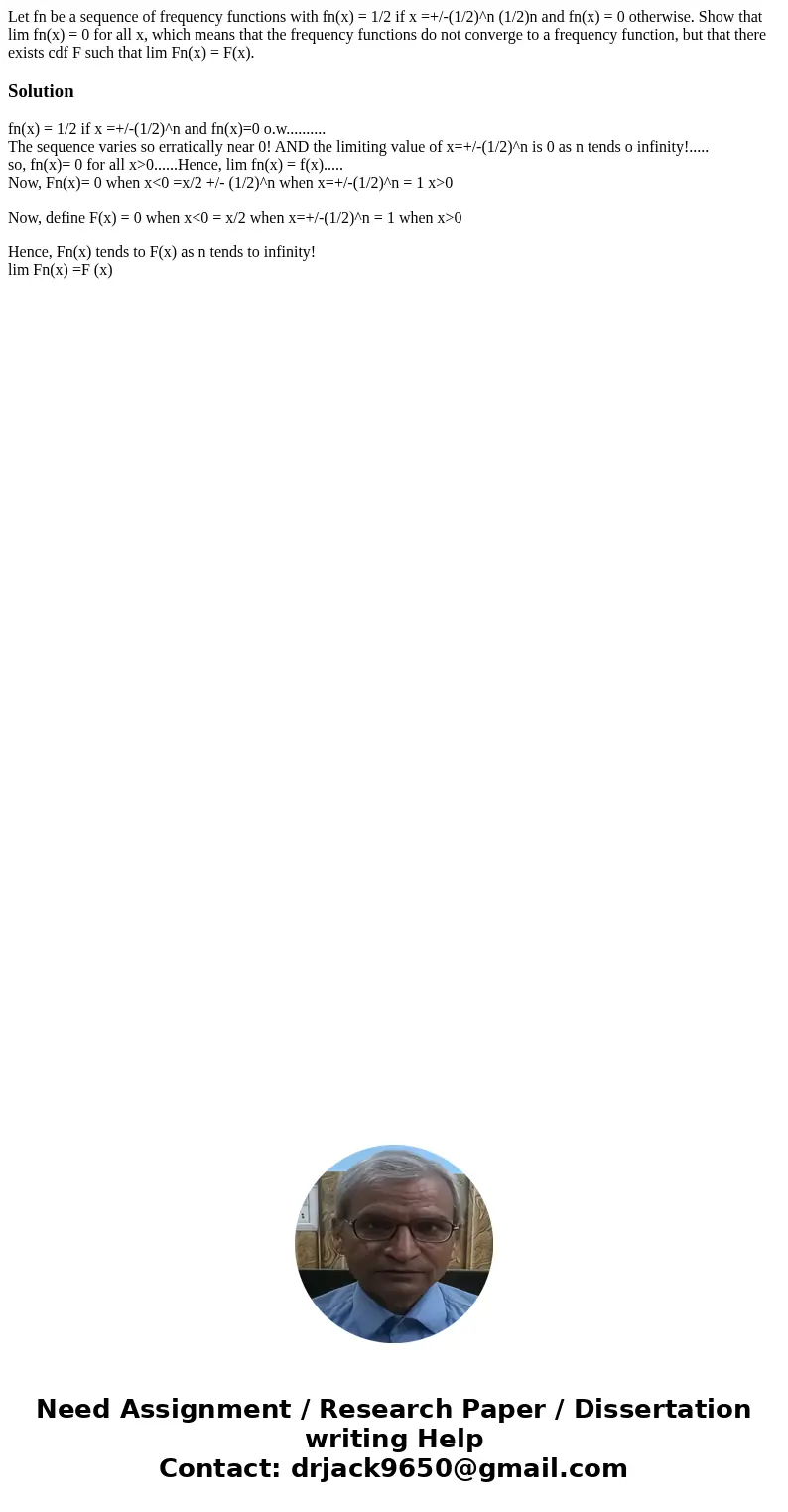Let fn be a sequence of frequency functions with fnx 12 if
Let fn be a sequence of frequency functions with fn(x) = 1/2 if x =+/-(1/2)^n (1/2)n and fn(x) = 0 otherwise. Show that lim fn(x) = 0 for all x, which means that the frequency functions do not converge to a frequency function, but that there exists cdf F such that lim Fn(x) = F(x).
Solution
fn(x) = 1/2 if x =+/-(1/2)^n and fn(x)=0 o.w..........
The sequence varies so erratically near 0! AND the limiting value of x=+/-(1/2)^n is 0 as n tends o infinity!.....
so, fn(x)= 0 for all x>0......Hence, lim fn(x) = f(x).....
Now, Fn(x)= 0 when x<0 =x/2 +/- (1/2)^n when x=+/-(1/2)^n = 1 x>0
Now, define F(x) = 0 when x<0 = x/2 when x=+/-(1/2)^n = 1 when x>0
Hence, Fn(x) tends to F(x) as n tends to infinity!
lim Fn(x) =F (x)

 Homework Sourse
Homework Sourse